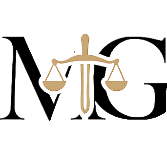PERSONAL INJURY
1. Introduction
Personal Injury Law provides legal remedies to individuals who have suffered harm due to the negligence, recklessness, or intentional actions of another person or entity. It aims to compensate victims for their physical, emotional, and financial losses arising from accidents, medical negligence, defective products, or wrongful acts.
2. Meaning of Personal Injury
Personal injury refers to any harm caused to a person’s body, mind, or emotions, as opposed to damage to property. Common personal injury cases include road accidents, workplace injuries, medical malpractice, product defects, and assault.
The primary goal of personal injury law is to restore the victim, as far as possible, to the position they were in before the injury occurred.
3. Key Principles of Personal Injury Law
3.1 Duty of Care
Every individual or organisation has a duty to act in a manner that does not harm others. For example, drivers must follow traffic rules, and doctors must provide proper medical care.
3.2 Breach of Duty
If a person or entity fails to act reasonably and causes harm, it amounts to a breach of duty.
3.3 Causation and Damage
The victim must prove that the injury was caused directly by the negligent act and that actual harm or loss occurred as a result.
4. Common Types of Personal Injury Cases
- Road Accidents – Injuries caused by negligent or rash driving.
- Medical Negligence – Harm caused by improper medical care or wrong diagnosis.
- Workplace Injuries – Accidents or health issues arising due to unsafe work conditions.
- Product Liability – Injuries caused by defective or unsafe products.
- Wrongful Death – Cases where negligence leads to a person’s death.
5. Compensation in Personal Injury Cases
Victims can claim compensation for:
- Medical expenses – Current and future medical costs.
- Loss of income – Wages lost due to the inability to work.
- Pain and suffering – Physical and emotional distress caused by the injury.
- Loss of earning capacity – Reduced ability to earn in the future.
- Punitive damages – In cases of gross negligence or intentional harm.
6. Legal Remedies and Process
The process generally involves filing a claim, proving negligence, establishing the extent of damages, and negotiating a settlement or pursuing a court case if required. Courts may award monetary compensation or order corrective action to address the harm caused.
7. Challenges in Personal Injury Claims
Victims often face difficulties in proving negligence, calculating future damages, and dealing with insurance companies. Proper documentation, medical records, witness statements, and expert legal assistance are crucial for a successful claim.
8. Importance of Legal Assistance
Personal injury cases require a clear understanding of laws, evidence, and calculation of fair compensation. Lawyers assist victims in filing claims, negotiating settlements, and representing them in court to ensure maximum compensation for their losses.
9. Conclusion
Personal Injury Law plays a vital role in protecting individuals from harm caused by the negligence of others. It ensures that victims receive fair compensation for their injuries and financial losses, while also promoting responsible behaviour in society. Timely legal action and professional guidance can significantly improve the chances of a successful claim.

